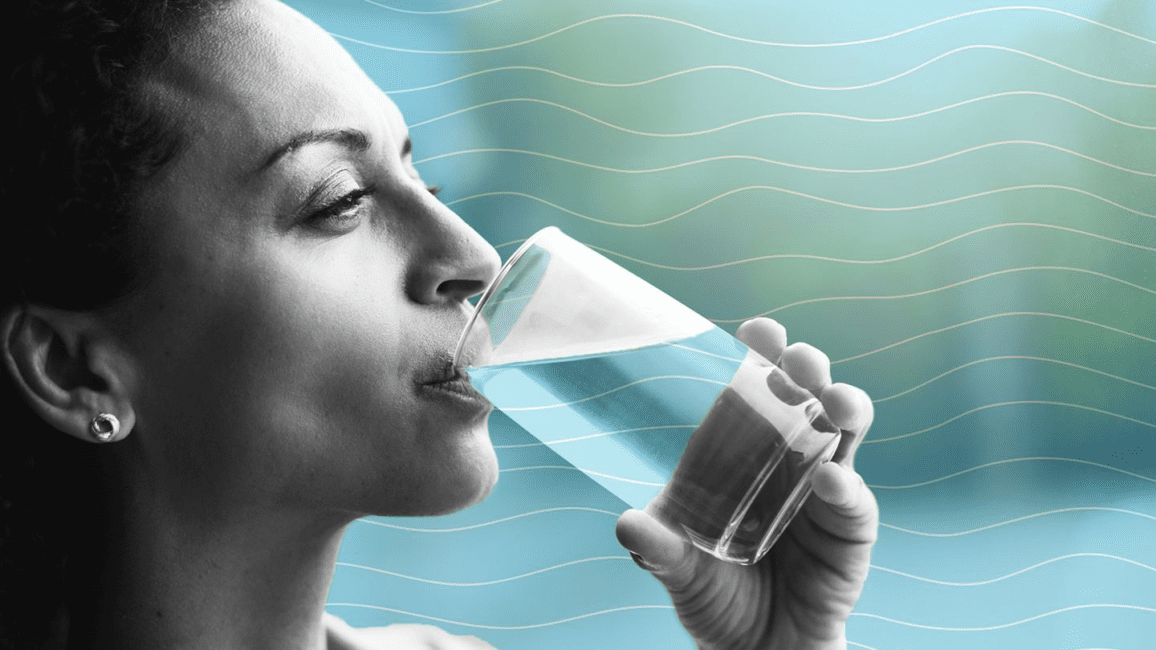21 Amazing Importance of Water (H2O) to the Body
Around 60 percent of the body is made up of water (H2O), and around 71 percent of the planet’s surface is covered by water. Keeping hydrated is crucial for health and well-being, but many people do not consume enough fluids each day. Perhaps it is the ubiquitous nature of water that means drinking enough each day is not at the top of many people’s lists of priorities.
Your body uses water in all its cells, organs, and tissues to help regulate its temperature and maintain other bodily functions. Because your body loses water through breathing, sweating, and digestion, it’s important to rehydrate by drinking fluids and eating foods that contain water.
The amount of water you need depends on a variety of factors, including the climate you live in, how physically active you are, and whether you’re experiencing an illness or have any other health problems.
This substance makes up a majority of your body weight and is involved in many important functions, including:
- flushing out waste from your body
- regulating body temperature
- helping your brain function
You get most of your water from drinking beverages, but food also contributes a small amount to your daily water intake.
To function properly, all the cells and organs of the body need water.
Here are some reasons our body needs water:

1. It lubricates the joints
Cartilage, found in joints and the disks of the spine, contains around 80 percent water. Long-term dehydration can reduce the joints’ shock-absorbing ability, leading to joint pain.
2. It forms saliva and mucus
Saliva helps us digest our food and keeps the mouth, nose, and eyes moist. This prevents friction and damage. Drinking water also keeps the mouth clean. Consumed instead of sweetened beverages, it can also reduce tooth decay.
Water is a main component of saliva. Saliva also includes small amounts of electrolytes, mucus, and enzymes. It’s essential for breaking down solid food and keeping your mouth healthy.
Your body generally produces enough saliva with regular fluid intake. However, your saliva production may decrease as a result of age or certain medications or therapies.
If your mouth is drier than usual and increasing your water intake isn’t helping, see your doctor.
3. It delivers oxygen throughout the body
Water carries helpful nutrients and oxygen to your entire body. Reaching your daily water intake will improve your circulation and have a positive impact on your overall health. Blood is more than 90 percent water, and blood carries oxygen to different parts of the body.
4. It boosts skin health and beauty
With dehydration, the skin can become more vulnerable to skin disorders and premature wrinkling. Adequate water intake will help keep your skin hydrated and may promote collagen production. However, water intake alone isn’t enough to reduce the effects of aging. This process is also connected to your genes and overall sun protection.
5. It cushions the brain, spinal cord, and other sensitive tissues
Dehydration can affect brain structure and function. It is also involved in the production of hormones and neurotransmitters. Prolonged dehydration can lead to problems with thinking and reasoning.
Read Also: All You Need to Know About Drinks and their Importance
6. It regulates body temperature
Staying hydrated is crucial to maintaining your body temperature. Your body loses water through sweat during physical activity and in hot environments.
Your sweat keeps your body cool, but your body temperature will rise if you don’t replenish the water you lose. That’s because your body loses electrolytes and plasma when it’s dehydrated.
If you’re sweating more than usual, make sure you drink plenty of water to avoid dehydration.
7. The digestive system depends on it
Contrary to what some believe, experts confirm drinking water before, during, and after a meal will help your body break down the food you eat more easily. This will help you digest food more effectively and get the most out of your meals.
Research shows through trusted sources that the body adapts to changes in the consistency of food and stomach contents, whether more solid or more liquid.
The bowel needs water to work properly. Dehydration can lead to digestive problems, constipation, and an overly acidic stomach. This increases the risk of heartburn and stomach ulcers.
8. It helps excrete waste through perspiration, urination, and defecation
Your body uses water to sweat, urinate, and have bowel movements.
Sweat regulates body temperature when you’re exercising or in warm temperatures. You need water to replenish the lost fluid from sweat.
You also need enough water in your system to have healthy stool and avoid constipation.
Your kidneys are also important for filtering out waste through urination. Adequate water intake helps your kidneys work more efficiently and helps to prevent kidney stones.
9. It helps maintain blood pressure
A lack of water can cause blood to become thicker, increasing blood pressure.
10. The airways need it
When dehydrated, airways are restricted by the body in an effort to minimize water loss. This can make asthma and allergies worse.
Related: Complete List of High Protein Foods you Should Know About
11. It makes minerals and nutrients accessible
In addition to helping with food breakdown, water also helps dissolve vitamins, minerals, and other nutrients from your food. It then delivers these vitamin components to the rest of your body for use.
These dissolve in water, which makes it possible for them to reach different parts of the body.
12. It prevents kidney damage
The kidneys regulate fluid in the body. Insufficient water can lead to kidney stones and other problems.
13. It boosts performance during exercise
Some scientists have proposed that consuming more water might enhance performance during strenuous activity.
More research is needed to confirm this, but one review found that dehydration reduces performance in activities lasting longer than 30 minutes.
14. Weight loss
Water may also help with weight loss, if it is consumed instead of sweetened juices and sodas. “Preloading” with water before meals can help prevent overeating by creating a sense of fullness.
15. It reduces the chance of a hangover
When partying, unsweetened soda water with ice and lemon alternated with alcoholic drinks can help prevent over consumption of alcohol.
Read Also: Complete Guide on How to Cook Pasta
16. It helps maximize physical performance
Drinking plenty of water during physical activity is essential. Athletes may perspire up to 6 to 10 percent of body weight during physical activity.
Hydration also affects your strength, power, and endurance.
You may be more susceptible to the effects of dehydration if you’re participating in endurance training or high-intensity sports such as basketball.
Negative effects of exercise in the heat without enough water can include serious medical conditions, like decreased blood pressure and hyperthermia. Extreme dehydration can cause seizures and even death.
17. It helps prevent constipation
Eating fiber isn’t the only way to prevent constipation. It’s also important to maintain your water intake so your bowel movements contain enough water.
If you don’t consume enough water, magnesium, and fiber, you may be more likely to experience constipation.
If you’re already constipated, you may find that drinking carbonated water as well as plain water can help ease your symptoms.
18. It helps fight off illness
Drinking enough water can help prevent certain medical conditions. These include:
- Constipation
- Kidney stones
- Exercise-induced asthma
- Urinary tract infection
- Hypertension
Water also helps you absorb important vitamins, minerals, and nutrients from your food, which will increase your chances of staying healthy.
19. It helps boost energy
Drinking water may activate your metabolism. A boost in metabolism has been associated with a positive impact on energy level.
One study found that drinking 500 milliliters of water boosted the metabolic rate by 30 percent in both men and women. These effects appeared to last over an hour.
20. It aids in cognitive function
Proper hydration is key to staying in tip-top cognitive shape. Research indicates that not drinking enough water can negatively impact your focus, alertness, and short-term memory.
21. It prevents overall dehydration
Dehydration is the result of your body not having enough water. And because water is imperative to so many bodily functions, dehydration can be very dangerous.
Severe dehydration can result in a number of severe complications, including:
- Swelling in your brain
- Kidney failure
- Seizures
Make sure you drink enough water to make up for what’s lost through sweat, urination, and bowel movements to avoid dehydration.
Related: Health Benefits of Cashew Nuts



